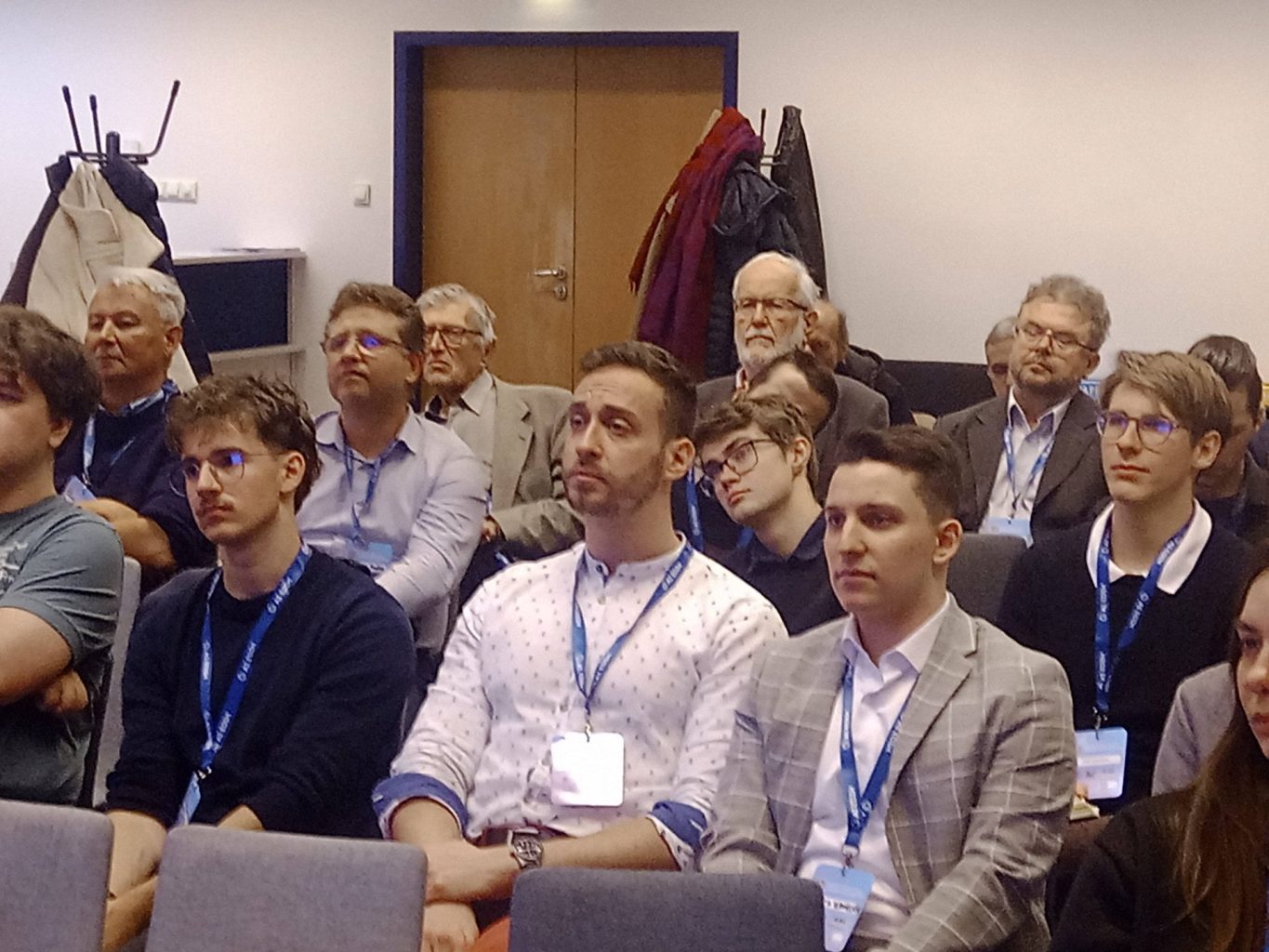Mental health and AI workshop in Budapest
On November 27th, 2024, Budapest played host to an international workshop titled Mental Health and Artificial Intelligence (MEHAI), one of the latest events to be sponsored the Active Assisted Living (AAL) Programme. An important event for the advancement of AI use in mental health diagnosis and treatment, delegates were also able to make important connections for future opportunities.

Hosted and supported by the Faculty of Electrical Engineering and Informatics (VIK) at BME, and the HCAIM, PANORAIMA, and AI EDIH projects, along with the AAL Programme, the Mental Health and Artificial Intelligence workshop held in Budapest in November 2024 brought together a diverse group of researchers, healthcare professionals, and AI experts to explore the intersection of artificial intelligence and mental health, with the goal of advancing understanding and innovation in this critical area.
The workshop featured 16 presentations, including one delivered online, and was divided into five key thematic sessions:
- Prevention and early detection of mental decline
- Needs and opportunities for digitalisation
- Solutions and further possibilities with AI
- Human-centred AI
- The EU’s AI Act and its impacts
With a total of 139 participants, the event was lively and engaging, with 86 delegates attending in person and 53 joining online. Participants came from diverse backgrounds, including medical professionals, social services providers and researchers, with many joining the sessions from outside Hungary.
The workshop was officially opened by Professor Sándor Imre, Dean of BME VIK, who highlighted the faculty’s long-standing commitment to AI and health research. Over the years, it has been at the forefront of developing AI-driven solutions in healthcare, particularly related to early diagnostics and mental health preservation. The Dean emphasised the importance of combining technical expertise with a human-centred approach to AI, an ethos that underpins the Human-Centred AI Master’s (HCAIM) programme at BME.
The first session focused on the early detection and prevention of mental decline, featuring presentations by physicians who discussed how AI could aid in identifying early warning signs of conditions like dementia and Alzheimer’s. These discussions highlighted the urgent need for digital solutions in mental health, especially in the context of an ageing population.
The second session explored the need for digital solutions in elderly care, with presentations from social service professionals who addressed the challenges and opportunities for AI applications in supporting ageing populations. This session underscored the importance of developing AI systems that are accessible and adaptable to elderly individuals, promoting their independence and well-being.
In the third session, researchers presented their ongoing projects that are developing machine learning to enhance diagnostic processes and therapeutic options for mental health conditions. The potential of AI to support psychiatric diagnosis and treatment was explored in depth, with emphasis on AI’s ability to analyse large datasets for more accurate and timely diagnoses.
The fourth session shifted focus to the human aspects of AI applications. Discussions included the ethical considerations of using AI in mental health and the importance of designing AI systems that prioritise user welfare and privacy. Presenters also discussed the results of the recently concluded project HCAIM and the goals of the forthcoming PANORAIMA project, which aims to further integrate human-centred principles into AI development.
The final session provided insights into the legal framework surrounding AI in Europe, specifically focusing on the EU’s AI Act. Experts discussed the implications of the Act for healthcare and mental health applications, with a particular focus on the regulatory landscape for AI in medical devices. Additionally, the session introduced the AI EDIH project, which offers free training for SMEs and public institutions to help them navigate AI technologies.
Throughout the event, participants had the opportunity to engage with the MentalFitness application, an AI-powered platform for mental health assessments. Attendees had lively discussions regarding its usability in different contexts, such as GP offices, clubs for older people and in home environments. This proved a valuable networking session and several new professional connections were formed during the breaks.
Key takeaways
- The critical role of AI in preventing and detecting mental decline, particularly through early diagnosis tools.
- The increasing need for digital solutions tailored to elderly care, especially as the population ages.
- The importance of integrating human-centred design principles into AI technologies to ensure ethical and effective applications in mental health.
- The evolving regulatory landscape, particularly the EU AI Act, and its potential impacts on healthcare and medical devices.
- The significant potential for collaboration between researchers, healthcare providers, and technology developers to create holistic, AI-powered solutions for mental health.
Conclusion
Overall, the MEHAI workshop provided an important platform for discussing the future of AI in mental health and mental wellness. It showcased the ongoing efforts to integrate advanced AI technologies into healthcare while maintaining a focus on human well-being, making it clear that AI has the potential to revolutionise the field of mental health care.
- For more details, the full programme of the workshop is available on the official event website: MEHAI Workshop Programme.

